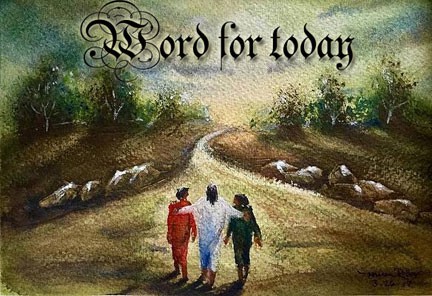Watch
Events
Articles
Market
More
I know that I usually have an ATTS on Wednesday, but we are between books and I really wanted to get this one out there.
I have already made a few comics on Christmas and I usually create them after the event. However, in recent years I have been feeling the need to post something leading up to. I've ignored this feeling the last few years but thought I should move forward this year.
As the comic points out, before anything we do we need to be thinking: What Would Jesus Do?
Would Jesus cut down a tree and drag it into His living room and decorate it with a bunch of stuff?
Would Jesus put presents around and under that tree for all of His loved ones?
Would Jesus hang stockings on a fireplace and be burning a Yule log?
Would Jesus put up a wreath and holly as part of His birthday?
Would Jesus have anything even remotely related to Santa on His person?
If we are truly honest with ourselves and not just tickling our own ears, I believe we all know the answer.
https://thestraightandnarrow.cfw.me/comics/1027
#bible #bibleverse #bibleverseimages #biblestudy #biblestudynotes #church #christian #webcomic #webcomicseries #cartoon #christmas



Thought for Today: Wednesday December 03
If the angels rejoice over one sinner that repents, {Luke 15:10}, then the angelic hosts are numbered among the spectators in the heavenly grandstands. They are included among those who are referred to as: “so great a cloud of witnesses” {Hebrews 12:1}, and they never miss any of the details of our earthly pilgrimage. Nor does our Almighty Most-High YHVH – overlook what goes on here. As the Bible say: “All things are… open to the eyes of Him to Whom we must give account” {Hebrews 4:13}



I hope you like my new song :)
It's a mix of RnB and progressive metal 😅
with a nice female voice 🙂
https://youtube.com/shorts/jyl....FQ3bU9Eo?si=YgX_Cav8
Times By Divine
by Dr Garth Grenache
and his Uncanny Valley Orchestra
2025:12:1
Verse 1
Born to the dawn,
Die with the night,
Plant in the rain,
Pluck in the light.
Verse 2
Break in the storm,
Build when it’s still,
Weep with the wind,
Laugh on the hill.
Chorus
All under skies,
Seas dip and rise,
Seasons align,
Times by divine.
Bridge
Love has its flame,
Hate awakens war,
Peace has a name,
Anointed at the door.
Chorus
All under skies,
Seas dip and rise,
Seasons align,
Times by divine.
Chorus
All under skies,
Seas dip and rise,
Seasons align,
Times by divine.



120225 / 10th day of the 9th month 5786
WORD FOR TODAY “what would be the answer if you asked this question”: Jos 5:13 Now it came about when Joshua was by Jericho, that he lifted up his eyes and looked, and behold, a man was standing opposite him with his sword drawn in his hand, and Joshua went to him and said to him, "Are you for us or for our adversaries?"
WISDOM FOR TODAY: Pro 19:16 He who keeps the commandment keeps his soul, But he who is careless of conduct will die.
Ask the LORD what is your purpose
www.BGMCTV.org




https://www.facebook.com/share/p/1CV1vUpnA9/



I received an interesting question which basically asks, “Is keeping a pet Biblical?” 2 Samuel 12:3, “but the poor man had nothing except one small ewe lamb that he had bought. He raised it, and it grew up with him and his children. It shared his food and drank from his cup; it slept in his arms and was like a daughter to him.” There are similar examples as well, so the next podcast will dig a little deeper into the question.


